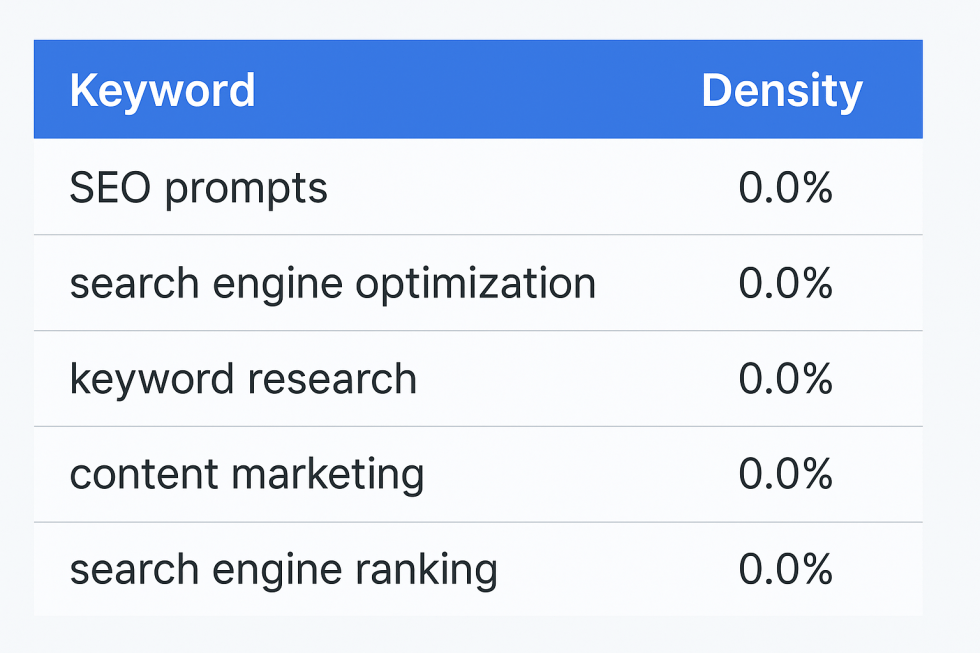
In the vast digital landscape, where countless websites compete for attention, understanding the intricacies of SEO-1/">search engine optimization (SEO) is crucial for visibility. A cornerstone of effective SEO is the focus keyword – the specific term or phrase that guides your content creation and optimization efforts. This article delves into the world of focus keywords, exploring their significance, various types, selection strategies, and practical applications to help you harness their power for improved search engine rankings and increased organic traffic.
Understanding the Core Concept: Why Focus Keywords Matter
Search engines, like Google, utilize complex algorithms to understand the context and intent behind user queries. They aim to deliver the most relevant results to users' needs. Focus keywords are the precise linguistic anchors that help search engines understand the topic and theme of your content. By strategically incorporating focus keywords into your website copy, meta descriptions, and other on-page elements, you signal to search engines that your content is relevant to specific search queries. This, in turn, boosts your chances of ranking higher in search results, driving more organic traffic to your website.
Different Types of Focus Keywords: Tailoring Your Strategy
Focus keywords aren't a one-size-fits-all solution. Recognizing different types allows for a more nuanced approach to content creation. Here are some key categories:
Short-Tail Keywords:
These are short, general phrases that often reflect broad user queries. For example, "running shoes" or "best coffee." While highly competitive, they can attract significant volume.
Long-Tail Keywords:
These are longer, more specific phrases that target niche searches. For example, "best running shoes for women with plantar fasciitis" or "best espresso machine under $500." They typically have lower search volume but often translate into higher conversion rates as they attract users with specific needs.
Transactional Keywords:
These keywords indicate a user's intent to complete a purchase or action. For example, "buy organic cotton t-shirts" or "book a flight to Paris." They are valuable for e-commerce websites or businesses seeking conversions.
Informational Keywords:
These keywords reflect a user's desire to learn more about a topic. For example, "how to bake a cake" or "benefits of yoga." They are crucial for content-driven websites and blogs.
Navigational Keywords:
These keywords are used to find a specific website or page. For example, "Amazon" or "Nike's website." While important for brand recognition, they often don't drive significant traffic to specific content pages.
Effective Strategies for Identifying and Selecting Focus Keywords
Selecting the right focus keywords is a crucial step in SEO. Here's a breakdown of effective strategies:
Keyword Research Tools:
Utilizing tools like Google Keyword Planner, Ahrefs, SEMrush, or Moz Keyword Explorer can reveal search volume, competition, and related keywords. These tools provide valuable data for informed decision-making.
Analyzing Competitors:
Examining the keywords used by top-ranking competitors in your niche can offer insights into popular search terms and identify potential gaps in your own content strategy.
Understanding User Intent:
Consider what users are searching for when using specific keywords. Are they looking for information, products, or services? Understanding the underlying intent helps you tailor your content effectively.
Analyzing Search Trends:
Tracking search trends using Google Trends can help you identify emerging topics and keywords that are gaining popularity, allowing you to adapt your strategy accordingly.
Incorporating Focus Keywords Naturally: Avoiding Keyword Stuffing
Once you've chosen your focus keywords, it's essential to incorporate them naturally into your content. Avoid keyword stuffing, which involves excessively using keywords to manipulate search engine rankings. This approach can actually harm your SEO efforts. Instead, focus on creating high-quality, engaging content that naturally incorporates your chosen keywords within the context of your writing.
Case Study: Optimizing a Blog Post
Imagine a blog post about "best travel destinations for budget travelers." Instead of just using "travel destinations," a more strategic approach would involve using long-tail keywords like "budget-friendly European backpacking trips," "affordable Southeast Asian beach vacations," or "best value hostels in South America." This targeted approach attracts users with specific needs, leading to a higher likelihood of engagement and conversions.
Measuring and Adapting Your Focus Keyword Strategy
Monitoring the performance of your focus keywords is crucial for continuous improvement. Track your website's traffic, keyword rankings, and user engagement metrics. Adapt your strategy based on these insights, adjusting your focus keywords or content creation approach as needed to align with evolving user searches and search engine algorithms.
Conclusion: The Power of Targeted Keywords
Focus keywords are essential for effective SEO. They are the linguistic bridges that connect your website content to user searches, driving organic traffic and enhancing visibility. By understanding the different types of keywords, employing appropriate research strategies, and incorporating them naturally into your content, you can significantly improve your search engine rankings and achieve greater success in the digital marketplace. Remember, a well-defined focus keyword strategy lays the groundwork for a robust and effective SEO approach.
📧 Stay Updated
Get the latest web development tips and insights delivered to your inbox.




